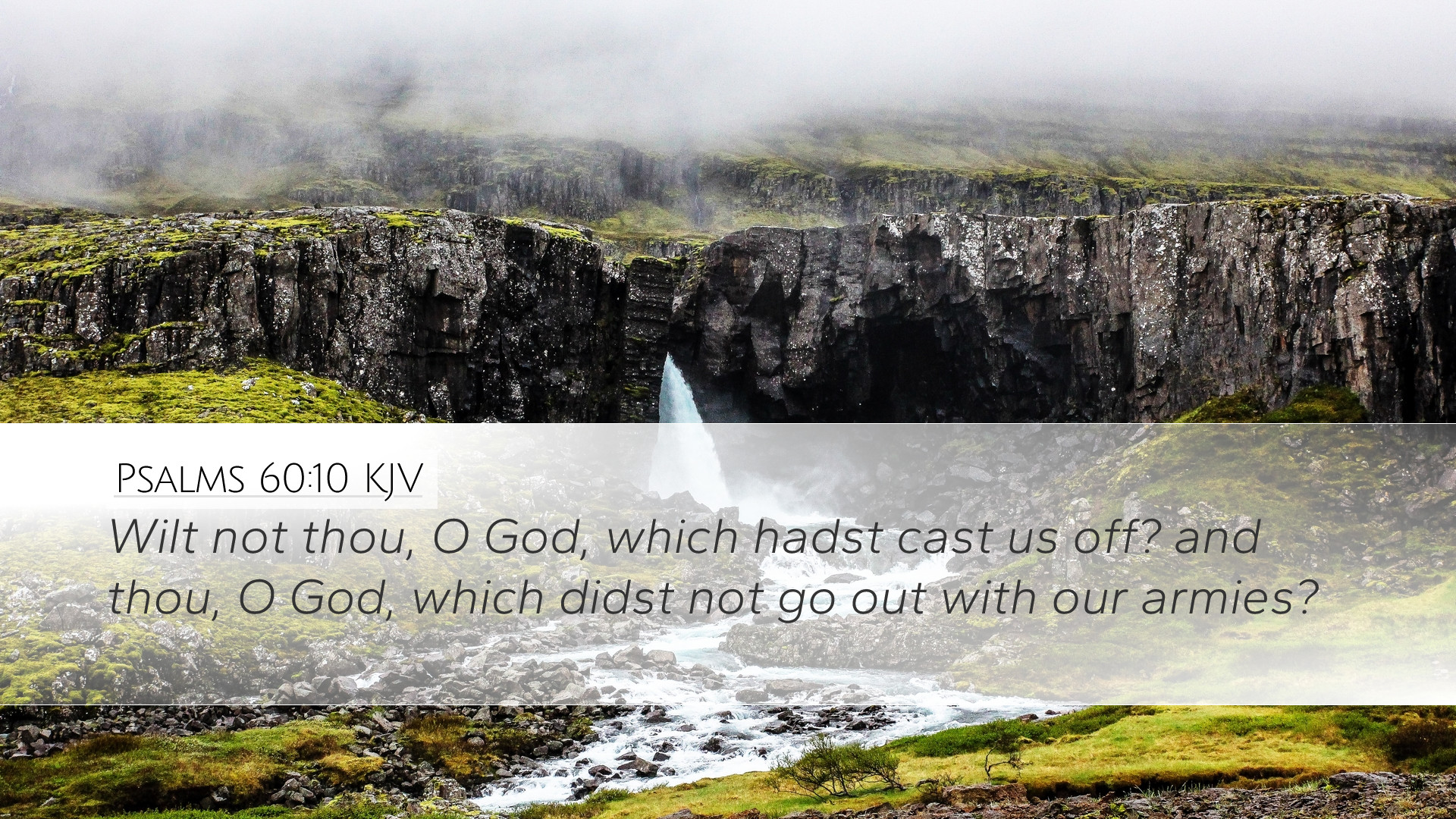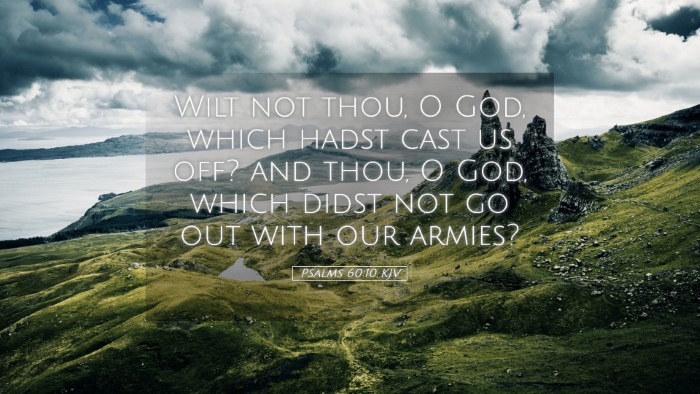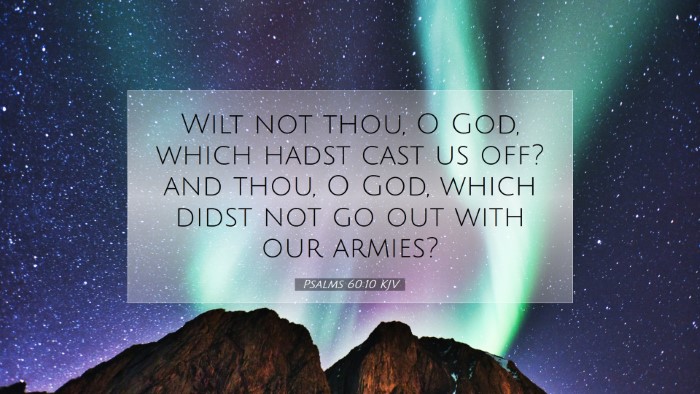Commentary on Psalms 60:10
Psalms 60:10 states: "Wilt not thou, O God, which hadst cast us off? and thou, O God, which didst not go out with our armies?" This verse presents a deep earnestness in the Psalmist's plea, reflecting a period of national distress and seeking divine reassurance and intervention. Throughout the history of Israel, moments of abandonment and divine silence were accompanied by heartfelt cries for God's presence and aid. This commentary draws on insights from public domain sources to explore its theological implications.
Context and Background
The Psalm is attributed to David, and it is often associated with the historical context of his military campaigns and the subsequent failures experienced due to spiritual decline or internal strife. The cry reflects a sentiment that resonates with both personal and communal aspects of faith.
Historical Context
In the midst of military struggles, David expresses anguish over God’s perceived withdrawal from his people. This verse is set against a backdrop of battles that Israel faced, highlighting the necessity of God's presence in their endeavors. Biblical commentaries emphasize that victories in warfare were seen as direct results of divine favor (Matthew Henry). The depth of this plea indicates that without God's involvement, the very efforts of the armies become futile.
Theological Insights
The dismay expressed in this verse embodies a two-fold theological acknowledgment: God's previous abandonment and the expectation of divine deliverance. This juxtaposition reveals important themes about divine justice, mercy, and the human condition in seeking restoration.
The Divine Relationship
Henry expounds that the acknowledgment of God as the one who casts off illustrates the gravity of sin and deviation from righteous paths. The implications are vast—understanding that God withdraws His support not randomly, but in response to the moral and spiritual state of His people. The Psalmist's question, "Wilt not thou, O God?", is not merely rhetorical but a profound declaration of dependency on God’s grace and reconciliation.
Furthermore, Albert Barnes highlights that a leader's sincerity in petitioning for divine assistance underscores the church's collective responsibility. The individual's relationship with God is mirrored in communal faith, further emphasizing that national strength hinges on spiritual fidelity.
Exploration of Key Elements
- Divine Abandonment: The phrase “which hadst cast us off” suggests a concrete, observable condition—disfavor that the Israelites felt amidst their trials.
- Hope for Restoration: The plea indicates an underlying faith as the Psalmist recalls the nature of God as one who has the power to restore and deliver.
- The Role of Leadership: As David is the representative figure, his lament serves as an intercessory prayer on behalf of the nation. Leaders are called not only to lead in victories but also to guide in spiritual renewal.
Practical Applications for Today
For modern-day pastors and theologians, this verse serves as a reminder of the continuous need for God’s presence in every aspect of ministry and communal life. Emphasizing humility and repentance, today's leaders can reflect on their personal and communal reliance upon divine support.
The verse encourages believers not only to seek aid in times of distress but also to recognize the spiritual health of their communities. Clarke notes the importance of addressing the root causes of abandonment, stressing that attention to spiritual life is crucial for fruitful ministry.
Conclusion
Psalms 60:10 is a poignant reminder of the universal experiences of feeling abandoned by God and the necessity of His intervention in restoring hope and strength. As we reflect on this verse, we are called to engage in repentance, seek restoration, and nurture a deeper relationship with our Creator, recognizing that every battle—whether spiritual, personal, or communal—requires His involvement.
In this light, the text provides a rich platform for prayer, reflection, and action within our churches and communities, as we echo the Psalmist’s longing for God's presence in our lives and efforts.


